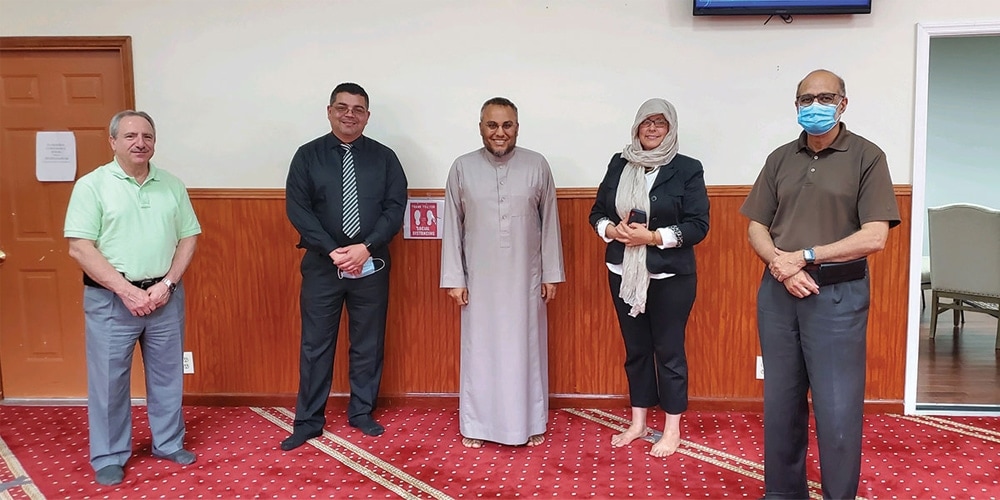
An advertisement that misrepresented the Seventh-day Adventist Church and received national media attention was published in the Nashville Tennessean newspaper on June 21, 2020. The ad, paid for by a splinter group, predicted a nuclear terrorist attack in Nashville on July 18, 2020, and mentioned elements of Islam as the perpetrators. It also used the name of the Seventh-day Adventist Church and the writings of Ellen G. White.
The ad, published by “Future for America,” caused great concern for Seventh-day Adventists, particularly to the Nashville area Adventist churches. The North American Division (NAD) immediately issued a statement denouncing the views presented in the ad, and a copy of the statement was sent to the Nashville Tennessean. Additionally, Gabriela Phillips, Adventist Muslim relations coordinator for the NAD, contacted one of the Islamic mosque leaders in Nashville.
Steve Haley, Kentucky-Tennessee Conference president, asked Nelson Mercado, pastor of Nashville First Seventh-day Adventist Church, to participate in the meeting with Phillips and the leader of the mosque in late June, at the Islamic Center of Nashville. Phillips and Mercado met with Imam Ossama Bahloul, a resident scholar at the Islamic Center of Nashville, and two mosque leaders.
“I thank you for hosting the meeting,” Phillips said as she apologized on behalf of the Seventh-day Adventist Church in North America concerning the ad.
Phillips explained to the Muslim leaders that it was published by a splinter group that was not associated with the Adventist Church. Further, Phillips and Mercado expressed to the imam that Adventists believe and practice the equality of all races. “We do not condone demonizing or threatening any faith group,” they told Bahloul.
Bahloul and his team said they were very thankful that Phillips and Mercado had reached out to them.
“The Islamic community is angry and hurt about the ad, because it seems that everything is blamed on Islam,” he told his visitors. At the same time, Bahloul said, they understood that these things sometimes happen because they have splinter groups in Islam as well.
Mercado asked if they would be willing to meet and share a meal to begin building bridges between their faith communities. They agreed to get together after the COVID-19 crisis has ended.
The original version of this story was posted by Southern Tidings.